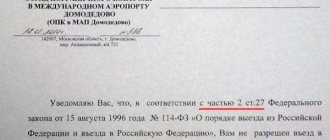In practice, there are many examples when electronic document flow between courts and participants in the process was useful and effective for everyone:
- In most cases, especially in arbitration courts, statements of claim are filed in court at the location of the defendant. Let's imagine a situation: a plaintiff company from St. Petersburg wants to collect debt under a supply agreement from a counterparty located in Vladivostok. You need to contact the Arbitration Court of Vladivostok. Whichever option you choose, filing your claim electronically is the most cost-effective way. The opposite situation is also possible: you need to file an objection to the claim, and the defendant is several thousand kilometers from the court. Again, going yourself, sending documents by mail or hiring local lawyers will cost much more and take longer than sending an objection to the court via the Internet.
- Law firms and divisions are the main users of electronic services for filing documents in court. When you have several things on hand, transferring most of the formalities to the electronic space will significantly simplify your task and optimize costs.
- It is impossible not to mention ordinary citizens. Today they often sue developers, insurance companies, housing and communal services organizations, actively defend consumer rights, etc. Taking documents to court in person or sending them by mail takes a long time. Moreover, as a rule, everything is not limited to filing a claim. It is necessary to file petitions, present documents as evidence, and possibly appeal interim judicial acts. Not everyone has time for this - you need to work. And not everyone can afford to hire a lawyer. Using the services, you can submit documents at any time, from anywhere where there is Internet access, regardless of the number of documents, their types and frequency of going to court.
The ability to electronically submit documents to the court is an important condition and, one might say, the first stage in the formation and development of a system of remote participation in trials. Along with the use of video conferencing, this should ensure the construction of a unified system. Then everyone can conduct the process without leaving their home or office. In some cases, this is already available, but the situation with coronavirus will apparently significantly expand the range of grounds and conditions for remote conduct of cases and receiving court decisions in electronic form.
When can you go to court on your own?
Lawyers advise contacting specialists if there is a large amount at stake or the dispute is vital.
But there are situations when you can do it on your own. If the amount of the dispute is not significant for you, or if you understand that it is standard and there is an unambiguous practice regarding it, then you can save money and independently protect your interests in court, including drawing up and filing a claim.
Lada Gorelik
lawyer, managing partner of the Moscow Bar Association "Gorelik and Partners"
Why is it better to seek help from a lawyer?
Of course, a cassation appeal to an arbitration court can be drawn up independently. But you must understand that the chances of the outcome in your favor are very small. The whole point is that existing errors in the case must be eliminated during the appeal hearing. Consequently, the cancellation of the act fully affects the authority of the judge who issued it.
The complaint must be drawn up correctly, taking into account the current legislation and all existing standards. It follows from this that it is best to entrust the preparation of a complaint to a professional. We are ready to fully address this issue. Our qualified lawyers:
- They will help you understand all the available nuances; when drawing up a complaint, they will explain what role cassation plays in the arbitration process ;
- will prepare a complaint taking into account all available information;
- analyze the situation from the legal side of the issue;
- familiarize yourself with the materials of won cases;
- build the right defensive line;
- will act as a defender;
- will help restore missed cassation deadlines.
What to do before going to court
Try to come to an agreement
In some cases, this is a rational step that will allow you not to spoil the relationship and come to a decision that is beneficial for everyone, since there is no guarantee that you will win in court.
In other cases, attempts at pre-trial settlement are required by law. These include, in particular:
- Amendment or termination of an agreement of the Civil Code of the Russian Federation Article 452. Procedure for amendment and termination of an agreement of the Civil Code of the Russian Federation Article 452. Procedure for amendment and termination of an agreement.
- Change or termination of an agreement on the payment of alimony of the RF IC Article 101. The procedure for concluding, executing, changing, terminating and invalidating an agreement on the payment of alimony.
- Termination of a lease agreement of the Civil Code of the Russian Federation Article 619. Early termination of the agreement at the request of the lessor.
- Disputes with a tour operator Article 10. Features of the sale of a tourism product.
If trying to reach a settlement is required in your case, you must provide evidence that you have tried to do so. Otherwise the claim will not be accepted. Therefore, if you cannot figure out exactly what to do, it is better to contact the defendant with a proposal to enter into a pre-trial agreement.
You can send a claim by registered mail with a list of attachments and a receipt. Or get a document acceptance stamp on your copy, if we are talking about an organization. This will give you the evidence you need to file a claim.
Find out if the statute of limitations has passed
It is imperative to file a claim with the court within the limitation period, because the opposite party’s statement about its expiration will be grounds for dismissal of the claim.
There is a general limitation period - three Civil Codes of the Russian Federation Article 196. The general limitation period is one year. But there are also abbreviated ones. Let’s say that if the pre-emptive right of purchase of the owners of shared ownership is violated, then this can only be reported within three months of the Civil Code of the Russian Federation. Article 250. Pre-emptive right of purchase.
You also need to correctly determine from what day to start counting the statute of limitations for the claim. As a general rule, it begins the moment you learn about a violation of your right and who violated it.
Lada Gorelik
Determine the defendant
It is useless to just go to court: you must definitely complain about someone. So it is necessary to determine who is responsible for the situation in which your rights were violated. You can file a claim against an individual or legal entity, or against a government agency. There may be several defendants.
A claim without a defendant will be left without progress. Therefore, if you do not know some data, you will have to conduct a little investigation. You will need a name or title and address. For example, information about legal entities or entrepreneurs can be obtained from the register on the Federal Tax Service website. And the owner of the apartment whose tenants have flooded you can be easily identified using an extract from the Unified State Register of Real Estate.
Evaluate the claim
We are talking about the amount you plan to recover - the value of the property, alimony payments for the year, and so on. The assessment of the cost of a claim should be approached rationally. For example, if your neighbor flooded you, you cannot enter random numbers. It is necessary to invite a specialist who will assess the damage and attach the results of the examination to the claim.
In the event of a clear discrepancy between the price of the claim and the actual value of the claimed property, it will be determined by the judge when accepting the statement of claim.
Alexey Yuferov
Deputy General Director of Legal
General points
You can rest assured that the decision made by the arbitration court is undoubtedly subject to appeal. To do this, an appeal against the court decision . You can call this action the third option in trying to restore justice.
It should be noted that the authority considering this type of complaint is unpredictable. Quite often, decisions in which obvious errors were made are not canceled and acts, the correctness of which no one even doubted, do not remain in force.
Cassation to the arbitration court does not guarantee a positive result, but does not cancel this possibility. In order for a case to be considered in cassation, it must necessarily go to the appellate court.
Which court should I go to?
Geographically, it is necessary to choose a court at the location of the defendant of the Code of Civil Procedure of the Russian Federation Article 28. Filing a claim at the place of residence or location of the defendant. But there are exceptions to the Code of Civil Procedure of the Russian Federation Article 29. Jurisdiction at the choice of the plaintiff. For example, if the defendant does not live in Russia, you can go to court at the place of his last residence. If we are talking about collecting alimony, compensation for damage after injury, reinstatement at work, the court at the plaintiff’s place of residence is appropriate. In cases where there are several defendants, file a claim at the address of any of them.
With the appearance of the court, everything is somewhat more complicated. Civil claims not related to business are usually heard in the magistrates or district court.
The magistrate's court considers the Federal Law of December 17, 1998 No. 188-FZ (as amended on April 18, 2018) “On Justices of the Peace in the Russian Federation” cases:
- On the issuance of a court order of the Code of Civil Procedure of the Russian Federation Article 121. Court order to collect money or claim property.
- About property disputes with a claim price of less than 50,000 rubles.
- On determining the procedure for using property.
- On the division of jointly acquired property of spouses, if its value is less than 50,000 rubles.
- On divorce if the spouses have agreed on the place of residence of the children.
Justices of the peace never consider cases of inheritance of property or cases related to intellectual property. Complex family cases on challenging and establishing paternity, deprivation or limitation of parental rights and adoption are also not within their competence.
Natalia Kochetkova
Leading Legal Adviser of the Legal
Claims in such cases and all other claims in the general jurisdiction system are heard by district courts. Arbitration courts have jurisdiction over disputes relating to economic activities. But here it is better to enlist the help of a lawyer.
Order. Stages. Peculiarities
The procedure for considering labor disputes in court is established by the Code of Civil Procedure of the Russian Federation. For a number of issues defined by this Code, the plaintiff may file a claim at his place of residence. Also, the plaintiff can choose the jurisdiction (where to send the claim) in the case when he worked or is working in a division or branch of the company. In this situation, the claim can be filed both at the legal address of the organization and at the location of this branch.
The claim may not be accepted for the following reasons:
- Incorrect preparation of the application or documents attached to it.
- Wrong choice of jurisdiction.
- There is a court decision on the same case, which at the time of filing the claim had already entered into legal force.
In order not to waste time, contact a lawyer who will help you check the available court decisions, determine the jurisdiction and draw up the claim correctly.
According to current laws, when considering an individual labor dispute in court, the parties are the employer and the employee. Representatives of the trade union or the prosecutor's office can participate in the process, but only as a participant, and not as one of the parties to the dispute. If necessary, experts, witnesses, and various specialists may be summoned to court. Their invitation occurs in accordance with the procedure established by law.
The court will consider all the circumstances of the dispute, study the materials submitted by the parties, and interview the participants in the proceedings. At the end of the process, a decision will be made whether to satisfy the claims or deny them. If the claims are satisfied, the decision is accompanied by instructions that the defendant must comply with.
After the court decision is made, the individual labor dispute is terminated. Court decisions must be executed after they enter into legal force, with the exception of certain cases. So, if illegal dismissal was dealt with during the trial, the employee must be reinstated in his previous place immediately. The employer has the right to appeal the court decision, but this does not relieve him of the obligation to reinstate the dismissed employee. Control over the implementation of all court decisions is entrusted to bailiffs.
In accordance with Article 393 of the Labor Code of the Russian Federation, Art. 89 of the Code of Civil Procedure of the Russian Federation and Article 336.36 of the Tax Code of the Russian Federation, the employee who filed the statement of claim is exempt from paying state duty, as well as legal costs. The same applies to situations where the court decided to refuse to satisfy the claims. As for the plaintiff employer, he must pay the state duty in the amount established by law.
What to write in a statement of claim
According to the law of the Code of Civil Procedure of the Russian Federation, Article 131. Form and content of the statement of claim, the following information must be indicated in the claim:
- The name of the court to which the claim is filed.
- Information about the plaintiff - full name or name, if we are talking about an organization, registration address.
- Information about the defendant.
- How the rights of the plaintiff were violated, what he demands from the defendant.
Briefly describe what exactly happened, provide links to laws. The narrative should be as simple as possible so that the court clearly understands what you want. A vague claim will most likely be left without movement.
The statement should not contain confusion or obvious contradictions. State the circumstances and facts clearly and consistently, without emotion, and add links to the rules of law relevant to the dispute.
If in the text of the claim you refer to incorrect articles of the law, the court does not have the right to refuse you only on this basis, since you are not required to have special legal knowledge.
Lada Gorelik
Be sure to write what you want to receive from the defendant. It is important that the requirement be realistic. Otherwise, the case will end in nothing, even if you win the trial.
- The price of the claim, if the claim is subject to assessment.
- List of documents attached to the claim.
It is necessary to provide the Code of Civil Procedure of the Russian Federation Article 132. Documents attached to the statement of claim, copies of the statement of claim in accordance with the number of defendants, papers confirming the circumstances of the case and your case, calculation of the amount of money collected or disputed, receipt of payment of the state duty.
The main part of the documents is attached in the form of certified copies, but the receipt for payment of the state duty will be required in the original.
The application must contain the signature of the plaintiff or his representative. In the second case, the claim must be accompanied by a copy of the document on the basis of which the representative acts - for example, a power of attorney.
If, by law, you were required to take measures to contact the defendant pre-trial, information about this is also included in the statement of claim.
After the entry into force of Federal Law No. 220-FZ of June 23, 2021 “On amendments to certain legislative acts of the Russian Federation regarding the use of electronic documents in the activities of judicial authorities,” many questions arose regarding the new procedure for submitting documents to courts of general jurisdiction through the State Automated System "Justice".
In this regard, the team of the legal partnership “Efimov and Partners” decided to consider and describe in detail the procedure and some issues of filing documents via the Internet in courts of general jurisdiction.
The Supreme Court of the Russian Federation, by three different orders, approved the rules according to which, from January 1, a new procedure for filing documents with the Supreme Court of the Russian Federation, the Arbitration Court of the Russian Federation and courts of general jurisdiction via the Internet is regulated.
Regarding courts of general jurisdiction, Order No. 251 of the Judicial Department under the Armed Forces of the Russian Federation of December 27, 2021 applies, in accordance with the provisions of which documents are submitted to courts of general jurisdiction via the Internet.
First of all, you need to go through the registration procedure in the Unified Identification and Logistics on the “Public Services” portal by clicking on the register button.
ESIA is a Unified Identification and Authentication System, authorization in which is a simple electronic signature when submitting documents (we will talk about the types of electronic signatures later).
There are three types of accounts on the Public Services portal:
- Simplified account. To register, you need a phone number and email address;
- Standard account. To register it, you need to indicate in your SNILS profile, the details of your identity document, and send them for verification. Personal data is checked by the Federal Migration Service and the Pension Fund of the Russian Federation;
- Verified account. In addition to providing all the requirements for a simplified and standard account, it also includes verifying your identity in one of several ways.
The number of services that you can use using the “Public Services” portal depends on the type of account you have. Therefore, registration with the Unified Identification of Authorities will help not only in submitting documents to the court via the Internet, but also in obtaining various government services (more about the Unified Automatic Identification and Automation, more about the types of accounts).
Note: a verified account allows you to get full access to government services and use the State Automated System “Justice” system. A verified account will help you significantly save both time and, in some cases, nerves when applying for various government services. Therefore, we recommend using a verified ESIA account.
Submitting documents to court
To submit documents to courts of general jurisdiction via the Internet, you must use the GAS “Justice” system. To do this, go to the system portal and click “login” in the upper right corner. To enter and authorize the system, your account in the Unified Identification and Authentication System, which you registered earlier on the “Public Services” portal, is used.
After the login page to the State Automated System “Justice” we get to the next page. We put a tick to confirm that we agree with the terms of the User Agreement and the processing of personal data. Click “login” and enter your ESIA account details. You can also log into the State Automated System “Justice” using an electronic signature.
Then we get to the first page and instead of the “login” button, our last name and initials already appear. Click “submit an appeal” or the “new appeal” tab in the appropriate section.
After clicking the “submit an appeal” tab, we are taken to a page where we need to select the type of our appeal. It is worth noting that the system does not currently work with justices of the peace and cases related to the Code of Administrative Offenses of the Russian Federation. We have a choice of filing applications under CAS and ordinary civil cases. We selected the “Statement for other proceedings” tab
Next we get to the application form page. Our data from the ESIA is automatically entered into the appropriate fields (personal data is hidden for obvious reasons). All we have to do is add a power of attorney, enter the applicant’s data, select a court, add an application and attachments to it. Then click “form a request”.
The “My Arbitrator” system is still in effect for filing applications to the arbitration court. Therefore, by clicking “Appeal to the Arbitration Court” the system will direct us to “My Arbitrator”.
Draft requests, previously submitted requests, and their movement are displayed in the “Case History” tab. This tab displays the appeal itself, the court to which the application was filed, the type of application and its current status. As we can see, an administrative claim has the status “Accepted for processing”, and a statement for other proceedings has the status “Technical refusal to accept the application”. This is due to the lack of technical ability to accept applications through the State Automated System “Justice” system in this court, and not to errors in the submission or execution of documentation (we’ll talk about technical failures later).
In courts of general jurisdiction, through the State Automated System “Justice”, you can submit both an electronic image of a document (that is, an ordinary scanned copy of a document) and an electronic document (that is, a document that is initially created not on paper, but in electronic form).
Electronic images of documents that we submit through the State Automated System “Justice” system must be sealed with an electronic signature (simple or enhanced qualified).
Electronic images of documents MUST be accompanied by a power of attorney or other document that confirms the person’s authority to submit documents (for example, a power of attorney indicating the authority of this person to submit documents to the court or to conduct business in court). Otherwise, your documents will be denied.
An electronic image of a document is created using scanning tools. Scanning a document on paper must be done at a scale of 1:1 in black and white or gray (quality 200-300 dpi). The electronic image file of the document must be in PDF format and its size should not exceed 30 MB.
The full list of requirements for electronic images of documents and electronic documents is described in paragraphs 2.2, 2.3 of the Order of the Judicial Department under the Armed Forces of the Russian Federation dated December 27, 2021 No. 251. We recommend that you read this Order further.
Electronic signature. Types of electronic signatures. The procedure for using electronic signatures depending on the type of documents.
An electronic signature is a replacement for a handwritten signature. Electronic signatures (ES) are divided into the following types: Simple and Strengthened. Reinforced in turn into Qualified and Unqualified.
To create and verify the authenticity of an Electronic Signature, you need an electronic signature key. The electronic signature key is a unique sequence of characters with which the authenticity of the electronic signature is verified.
Clause 1.3 of the Procedure states that the account of an individual ESIA is used as a simple electronic signature key. That is, if a person has received authorization on the “Public Services” portal, then electronic images of documents (that is, scanned copies of paper documents) that he sends to the court will automatically be certified by a simple electronic signature.
Thus, a simple electronic signature is a combination of the ESIA login and password, which confirms that the electronic message was sent by a specific person.
Note: returning to the above, we note once again that it is necessary to distinguish between the concepts of an electronic image of a document and an electronic document; the procedure for attaching it with a certain type of electronic signature depends on the type of document.
Electronic images of documents must be certified with a simple electronic signature or an enhanced qualified signature, and electronic documents - only with an enhanced qualified signature.
Electronic documents must be signed electronically by the person indicated in the text of the electronic document as the person who signed it. (that is, the author of the electronic document must sign the UKEP document).
An enhanced qualified electronic signature (ECES) not only identifies the sender, but also confirms that the electronic document has not been changed since the moment of signing.
The UKEP must be in a separate file (detached electronic signature); an attached signature is not allowed.
There is a list of documents that can be submitted through the GAS “Justice” system only if they are sealed with an enhanced qualified electronic signature. These include:
- application for securing a claim (part 1 of article 139 of the Code of Civil Procedure of the Russian Federation);
- application for the application of preliminary protective measures in an administrative claim (Part 1.1 of Article 86 of the CAS RF);
- a statement of claim that contains a request to secure the claim (part 4 of article 131 of the Code of Civil Procedure of the Russian Federation);
- an administrative statement of claim, which contains a request for the application of preliminary protection measures (Part 9 of Article 125 of the CAS RF);
- a petition to suspend the execution of court decisions (part 1 of article 381, part 1 of article 391.5 of the Code of Civil Procedure of the Russian Federation).
More information about electronic signatures can be found in the Federal Law of April 6, 2011 No. 63-FZ “On Electronic Signatures”
Technical refusal to accept the application. Causes.
There are grounds for refusing to accept documents through the GAS “Justice” system. We will receive a technical refusal if the documents submitted through the system to the court do not comply with the provisions of paragraph 4.5 of the Order.
In addition, the provisions of the Arbitration Procedural Code of the Russian Federation, the Civil Procedure Code of the Russian Federation and the Code of Administrative Proceedings of the Russian Federation in the new edition are applied only if the courts have technical capabilities (Part 4 of Article 12 of Law No. 220-FZ).
This means that if, for example, in a court of general jurisdiction it is not possible to receive documents in electronic form or notify participants in the process via the Internet, then the court will continue to work according to the previous rules. Accordingly, in this case we will also receive a “Technical refusal to accept the application.”
Leaving requests without progress. Final provisions.
It is necessary to understand that electronic images of documents submitted to a court of general jurisdiction will in any case need to be submitted in the original, regardless of the type of electronic signature with which the document is signed. This is due to the fact that the court needs to establish whether the original of such an electronic image of the document is available, which is quite logical.
In addition, there are cases when judges leave the appeal without progress, citing the fact that copies of documents for the defendant and third parties have not been provided. In order for the statement of claim not to be left without progress, the procedure provided for in Article 132 of the Code of Civil Procedure of the Russian Federation on the number of copies according to the number of persons can be performed by mailing these copies to the defendant and third parties, attaching a copy of the shipping receipt to the application. However, this method is not provided in any way. Based on the meaning of the Order, we do not recommend its use. The court must independently print out the necessary copies of documents.
Applications that are not accompanied by original receipts for payment of state fees are left without action.
Based on the meaning of the new procedure, as well as the meaning of Article 132 of the Code of Civil Procedure of the Russian Federation, receipts for payment of state fees can be presented at the preliminary court hearing, since it is not possible to submit the originals electronically (similar to copies of materials based on the number of persons). Thus, judges, probably due to novelty, ignorance and misunderstanding of the system, leave appeals without progress.
We strongly recommend that you create correct precedents for using the new filing procedure. It is you and I who stand at the origins of the new document submission system, and we have to, despite the incompetence and ignorance of some employees, improve and bring it to life. We believe that in the near future the new procedure for filing documents will be fully communicated to court employees, and unresolved and controversial issues will be regulated in full.
Legal partnership “Efimov and Partners” provides legal support services for litigation throughout Russia: administrative, commercial, corporate, labor and other disputes in the courts.
How to file a claim in court
You can submit an application in paper form: personally bring it to the office of the court you need or send it there by letter with a list of the contents and a receipt.
The second option is to electronically submit a claim through the State Automated System “Justice”. To log in, use your username and password from Gosuslug.
Most district courts accept electronic applications, but magistrate judges do not always have this opportunity. Therefore, it is better to clarify in advance in what form you will be able to file a claim in your specific court.
Lada Gorelik
Requests
When drawing up an application, you can ask that a new decision be made, or that the previous act be reviewed anew.
In fact, the court is not obliged to adhere to the stated petition, but in most cases it still does not go beyond it. From this it becomes clear that it is best to ask for a review of the case. Almost always such a requirement remains satisfied. After this, all documents are sent to the court of appeal, which is more loyal to the applicant.
As for making a new decision, you need to understand that a positive outcome will only occur if there are good reasons for this, i.e. there is new evidence and no re-evaluation of existing information is required. Otherwise, the applicant will be refused.
What will the state duty be?
Some claims are exempt from state fees. Among them, for example:
- Salary collection.
- Compensation for damage caused by a crime.
- Protection of the rights and legitimate interests of the child.
- Consumer rights Protection.
The full list can be found in the Tax Code of the Tax Code of the Russian Federation, Article 333.36. Benefits when appealing to the Supreme Court of the Russian Federation, courts of general jurisdiction, and magistrates.
For claims of a non-property nature, the amount of the state duty is fixed and depends on the Tax Code of the Russian Federation Article 333.19. The amount of state duty for cases considered by the Supreme Court of the Russian Federation, courts of general jurisdiction, justices of the peace, depending on the subject of the dispute. For example, for a claim for divorce you will have to pay 600 rubles.
For a property claim subject to assessment, the amount of the state duty varies depending on the value of the claim:
- Up to 20,000 rubles - 4% of the claim price, but not less than 400 rubles.
- From 20,001 rubles to 100,000 rubles - 800 rubles plus 3% of the amount exceeding 20,000 rubles.
- From 100,001 rubles to 200,000 rubles - 3,200 rubles plus 2% of the amount exceeding 100,000 rubles.
- From 200,001 rubles to 1,000,000 rubles - 5,200 rubles plus 1% of the amount exceeding 200,000 rubles.
- Over 1 million rubles - 13,200 rubles plus 0.5% of the amount exceeding 1,000,000 rubles, but not more than 60,000 rubles.
Details for paying the state fee can be found on the website of the court of your choice. There is usually a calculator with which you can calculate the exact amount of the required contribution.
Deadlines
Cassation in the arbitration court is considered only within the time limits specified by law. And it is very important not to miss them. Thus, six months are allotted for civil cases, and two months for arbitration cases. In order to make calculations correctly, it is necessary to start from the day following the day on which the appeal was accepted, or from the day on which the federal court decision came into force.
Circle of persons having the right to appeal:
- A person participating in the process;
- A third party, if the court decision affected his legitimate interests.
Briefly
- The application does not have a single unified form and can be written in free form.
- The free form of the document is reflected in the main part, describing the reason for the written request. Other required blocks of the document are information about the addressee, applicant, date, signature. They are formalized strictly according to the rules of office work. The use of the name is considered correct.
- A free-form application must be written concisely, to the point, using business writing style, by hand or using a PC.
- Documents confirming its contents may be attached to the free-form application.
- Submit the application to the office in person or by registered mail with notification. In connection with the development of computer technology, the possibilities of electronic transmission of applications using an electronic digital signature instead of a physical signature are expanding.
When is an appellate or federal court decision overturned?
- There are no rules of law in the case that should have been used;
- There are laws that do not exist;
- The law has been misinterpreted;
- There are no minutes of the meeting;
- Violation of judicial composition;
- Judicial secret revealed;
- One of the main participants was absent and this was not communicated properly.
We are ready to provide our clients with qualified assistance at any stage of filing a cassation appeal. This process requires a careful and serious approach. After all, the final decision in the case, which can radically change the course of events, depends on a correctly drafted complaint.








